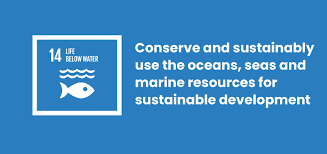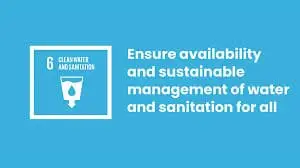The fourteenth Sustainable Development Goal (SDG 14) focuses on conserving and sustainably using the oceans, seas, and marine resources. Healthy marine environments are crucial for biodiversity, climate regulation, and the livelihoods of millions of people worldwide.
Understanding Life Below Water
Life Below Water encompasses the protection and restoration of marine ecosystems, sustainable management of ocean resources, and efforts to reduce marine pollution. This goal emphasizes the importance of maintaining healthy oceans to support marine life, ensure food security, and protect coastal communities.
Key Targets of SDG 14
- Reduce Marine Pollution: By 2025, prevent and significantly reduce marine pollution of all kinds, particularly from land-based activities, including marine debris and nutrient pollution.
- Protect Marine Ecosystems: Sustainably manage and protect marine and coastal ecosystems to avoid significant adverse impacts and take action for their restoration in order to achieve healthy and productive oceans.
- End Overfishing: End overfishing, illegal, unreported, and unregulated fishing, and destructive fishing practices, and implement science-based management plans to restore fish stocks in the shortest time feasible.
- Increase Scientific Knowledge: Increase scientific knowledge, develop research capacity, and transfer marine technology to improve ocean health and the sustainable use of marine resources.
- Sustainable Fisheries: Ensure the sustainable management of fisheries and the protection of marine habitats, with a focus on developing countries and Small Island Developing States (SIDS).
- Marine Protected Areas: Increase the proportion of marine areas that are protected and under effective management.
Strategies for Achieving SDG 14
- Combat Marine Pollution: Implement measures to reduce pollution from land-based sources, such as plastic waste, chemicals, and nutrients, and promote cleaner production methods.
- Support Marine Conservation: Establish and enforce marine protected areas to safeguard critical habitats and biodiversity, and support conservation efforts for endangered marine species.
- Promote Sustainable Fishing Practices: Develop and enforce sustainable fishing practices, regulate fishing activities, and combat illegal fishing to ensure the health of fish populations and marine ecosystems.
- Enhance Ocean Research: Invest in ocean research and monitoring to improve understanding of marine ecosystems and support evidence-based management and policy decisions.
- Strengthen International Cooperation: Collaborate with international organizations and stakeholders to address global marine challenges and promote sustainable management of ocean resources.
The Importance of SDG 14 in the 2030 Agenda
SDG 14 is essential for ensuring the health and sustainability of our oceans and marine resources. Protecting and managing marine environments is vital for maintaining biodiversity, supporting livelihoods, and addressing global environmental challenges. By achieving this goal, we contribute to a sustainable future for both marine ecosystems and human communities.




